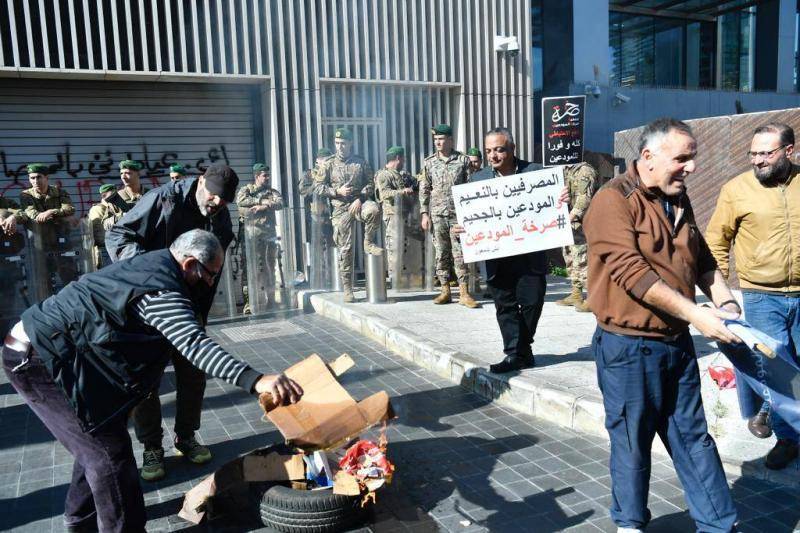The government has preliminarily completed a draft law for addressing bank conditions and reorganizing them, which will be reviewed by the Cabinet in an upcoming session before being sent to the Parliament. The draft includes specific provisions for how deposits will be recovered, with the main highlights being:
- Deposits in foreign banks operating in Lebanon will be returned in full to their owners.
- Any deposit exceeding $500,000 must be justified by its owner, regardless of whether the source is domestic or foreign, particularly through tax disclosures.
- Bankers are required to declare their movable and immovable assets in Lebanon and abroad starting from 2015.
- Public employees with accounts of $300,000 or more must provide proof of the legality of their funds.
- A surplus of bank profits, bankers' bonuses, and any other privileges above the banking average since 2016 must be returned.
- All amounts exceeding $100,000 that were illicitly transferred abroad must be recovered.
- Non-eligible deposits are those formed after October 17, 2019, through transfers, checks, and other means.
- The protected amount for eligible deposits is up to $100,000, and up to $36,000 for non-eligible deposits, which will be paid out to owners equally from the Central Bank and the banks.
- Withdrawals, transfers, and any amounts paid on loans in Lebanese pounds will be deducted from the protected amount, including funds received under Central Bank directives, notably Circular 158.
- Eligible deposits will be repaid over a period of 10 to 15 years starting from $300, later increasing to $800, while non-eligible deposits will also be paid over 10 to 15 years starting from $200, increasing to $400.
- Eligible deposits exceeding $100,000 will have interest deducted from 2015, with an optional part payable by the client in Lebanese pounds at a rate of 20% of the exchange rate, and through converting deposits to shares at a rate of $5 equal to $1; for non-eligible deposits, the rate will be $10 for $1.
- A fund will be established for deposit recovery under certain conditions, which will be financed from recovered illicit funds and specific government revenues (with stringent conditions), converting deposits into financial securities rated A or higher (for the long term), with the Central Bank sharing the value of these securities with banks.




